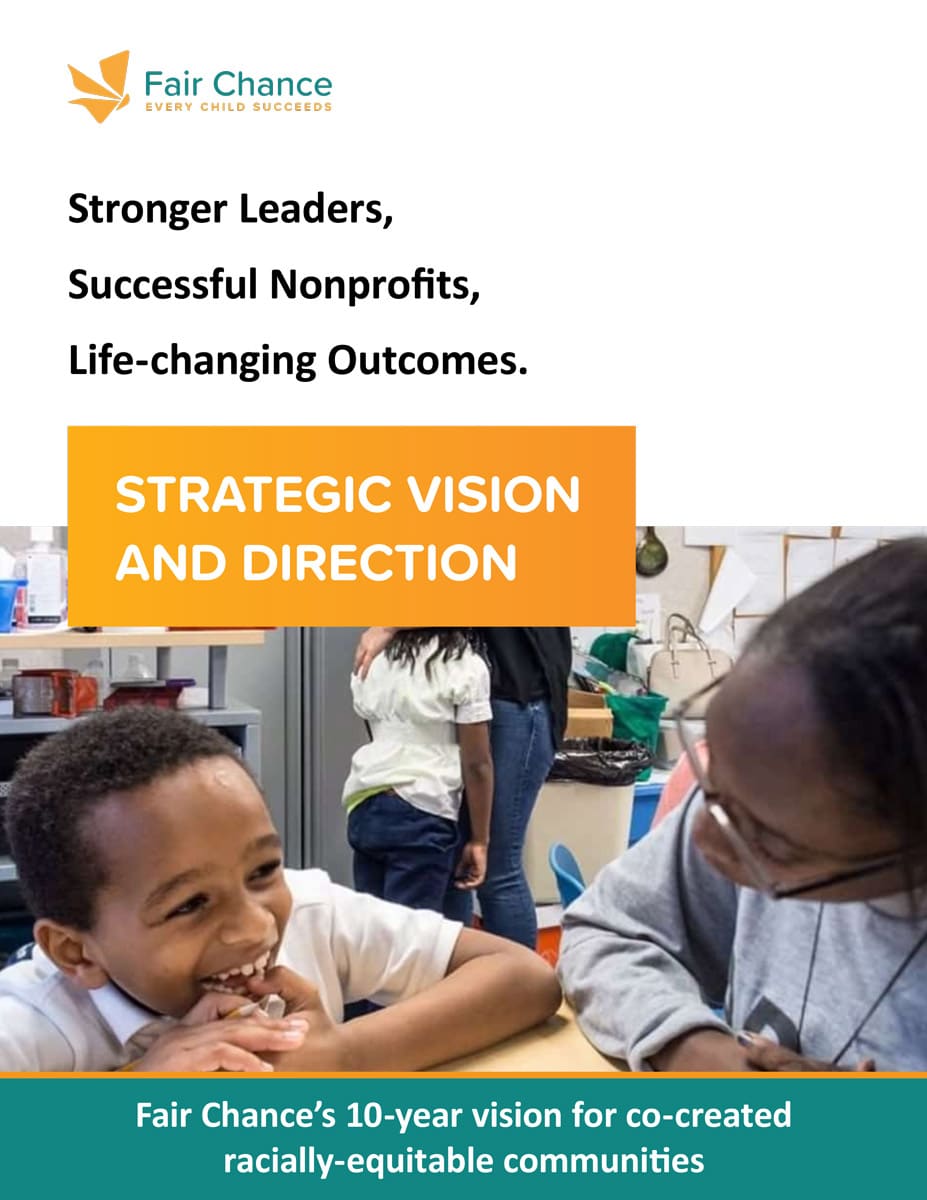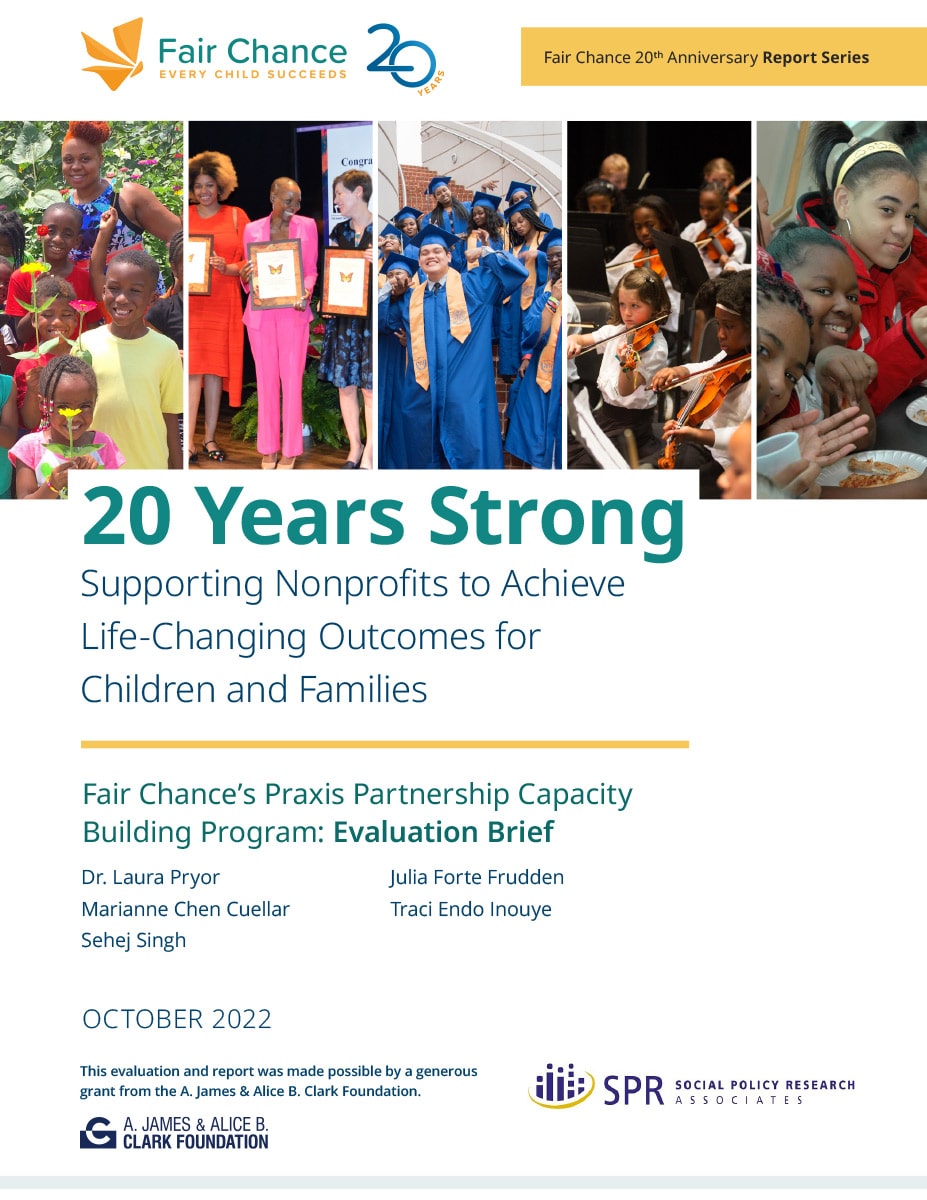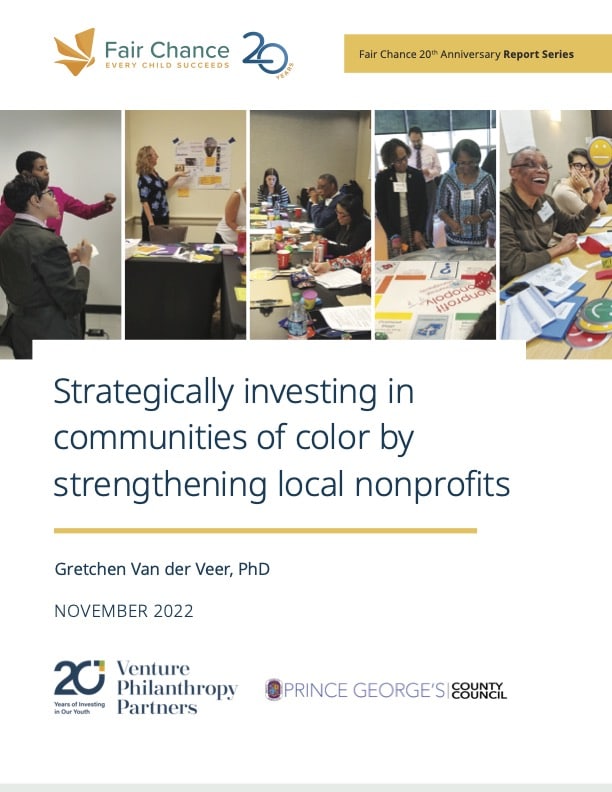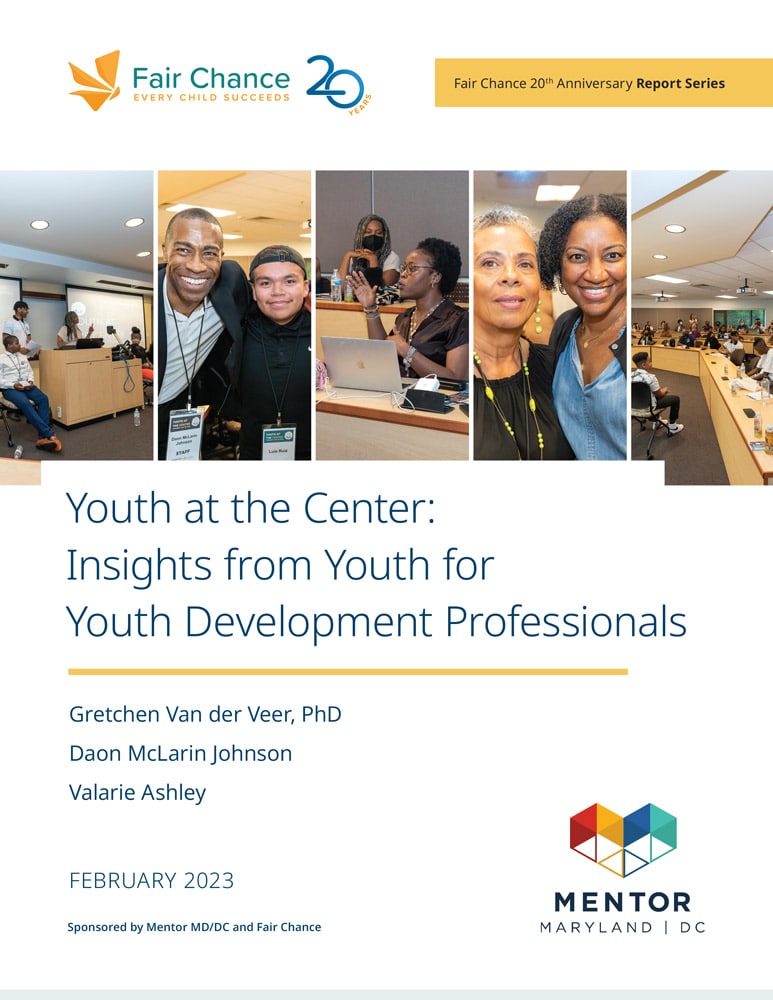20th Anniversary
In celebration of our 20th Anniversary, Fair Chance is publishing a series of reports documenting our impact and vison for the future. Over the next few weeks, each report will explore the impact of our capacity building work for nonprofits, the nonprofit sectior, and communities.
10-Year Strategic Vision
A world where every child succeeds, regardless of zip code, can only be achieved when all children and families have access to and benefit from high-quality and equitable services; power in decision making; and policies and structures that promote equity and access. As an organization, we commit to work in collaboration with our partners and community leaders to achieve this reality. We have outlined how we will accomplish this vision in the adjacent document detailing our 10-year goals and three-year strategic priorities. We cannot do this work alone. Please download to see how you can join us in creating more fair chances for every child to succeed.
To learn more and connect, contact Tamala Scott at tscott@fairchance.org
Praxis Evaluation Brief
In 2021, with a generous investment from the A. James & Alice B. Clark Foundation, Fair Chance contracted the national evaluation firm Social Policy Research Associates (SPR) to conduct a study of our flagship capacity building program the Praxis Partnership Program. The evaluation found that this unique capacity building model has a measurable effect on the performance of community-based organizations and supports sustained organizational improvements across time.
Today Fair Chance is releasing the evaluation summary brief to the general public providing an overview of the study findings and implications. We invite you to join us as we build and improve upon our work and engage with others in dialogue about the larger implications for the nonprofit sector.
Strategically Investing in Communities of Color by Strengthening Local Nonprofits
In 2018, Fair Chance was selected by Venture Philanthropy Partners (VPP) and the Prince George’s County Council to co-manage a new County-wide initiative — The Ready for Work Nonprofit Capacity Building Program (NCBP). The NCBP’s goal is to strengthen the management, fundraising, and infrastructure of Prince George’s County’s nonprofits to provide greater access and opportunities to more children, youth and families across the County. Four nonprofits were selected for the first cohort: End Time Harvest Ministries, First Generation College Bound, The Foundation for the Advancement of Music & Education (FAME), and Joe’s Movement Emporium.
In reviewing the impact of the NCBP on the nonprofits in the first cohort, there were clear benefits to longer-term, intensive, and community-centered capacity building for small nonprofits working in communities of color. As foundations and government entities seek strategies to provide more support for communities of color, the NCBP program may be a model for consideration. Please read our full report Strategically investing in communities of color by strengthening local nonprofits to learn more.




